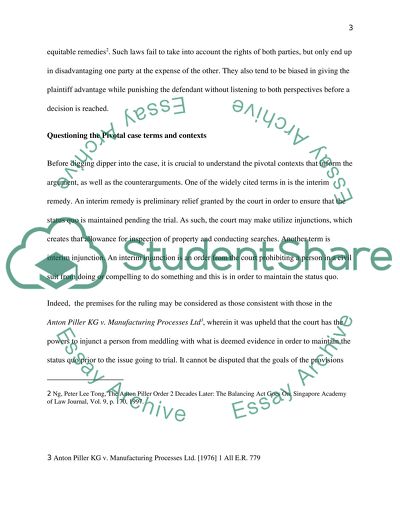Cite this document
(“Why did Scott J suggest that search orders had a draconian and Essay”, n.d.)
Retrieved from https://studentshare.org/law/1471831-why-did-scott-j-suggest-that-search-orders-had-a
Retrieved from https://studentshare.org/law/1471831-why-did-scott-j-suggest-that-search-orders-had-a
(Why Did Scott J Suggest That Search Orders Had a Draconian and Essay)
https://studentshare.org/law/1471831-why-did-scott-j-suggest-that-search-orders-had-a.
https://studentshare.org/law/1471831-why-did-scott-j-suggest-that-search-orders-had-a.
“Why Did Scott J Suggest That Search Orders Had a Draconian and Essay”, n.d. https://studentshare.org/law/1471831-why-did-scott-j-suggest-that-search-orders-had-a.


